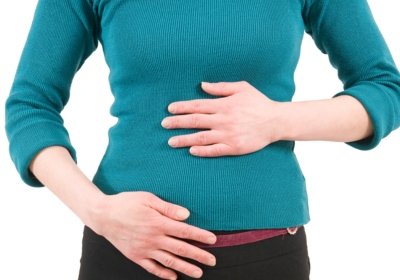
According to US researchers, the rise of inflammatory bowel diseases could be down to our shifting diets causing a “boom in bad bacteria”.
Mouse experiments detailed in the journal Nature linked certain fats, bacteria in the gut and the onset of inflammatory diseases.
The researchers said the high-fat diet changed the way food was digested and encouraged harmful bacteria.
Microbiologists said modifying gut bacteria might treat the disease.
Inflammatory bowel diseases (IBDs) include Crohn’s and ulcerative colitis. When the gut becomes inflamed it can lead to abdominal pain and diarrhoea.

The researchers at the University of Chicago said the incidence of the diseases was increasing rapidly.
They used genetically modified mice which were more likely to develop IBDs. One in three developed colitis when fed either low-fat diets or meals high in polyunsaturated fats. This jumped to nearly two in three in those fed a diet high in saturated milk fats, which are in many processed foods.
These saturated fats are hard for the body to digest and it responds by pumping more bile into the gut. This changes the gut environment and leads to a change in the bacteria growing there, the researchers said.
One bacterium in particular, Bilophila wadsworthia, was identified. It thrives in the extra bile produced to break down the fats. It went from being incredibly rare to nearly 6% of all bacteria in the gut in the high-fat diet.
Prof. Eugene Chang, of the University of Chicago, said: “Unfortunately, these can be harmful bacteria. Presented with a rich source of sulphur, they bloom, and when they do, they are capable of activating the immune system of genetically prone individuals.”
However, he said this could lead to possible treatments as the gut bacteria could be “reshaped” without “significantly affecting the lifestyles of individuals who are genetically prone to these diseases”.